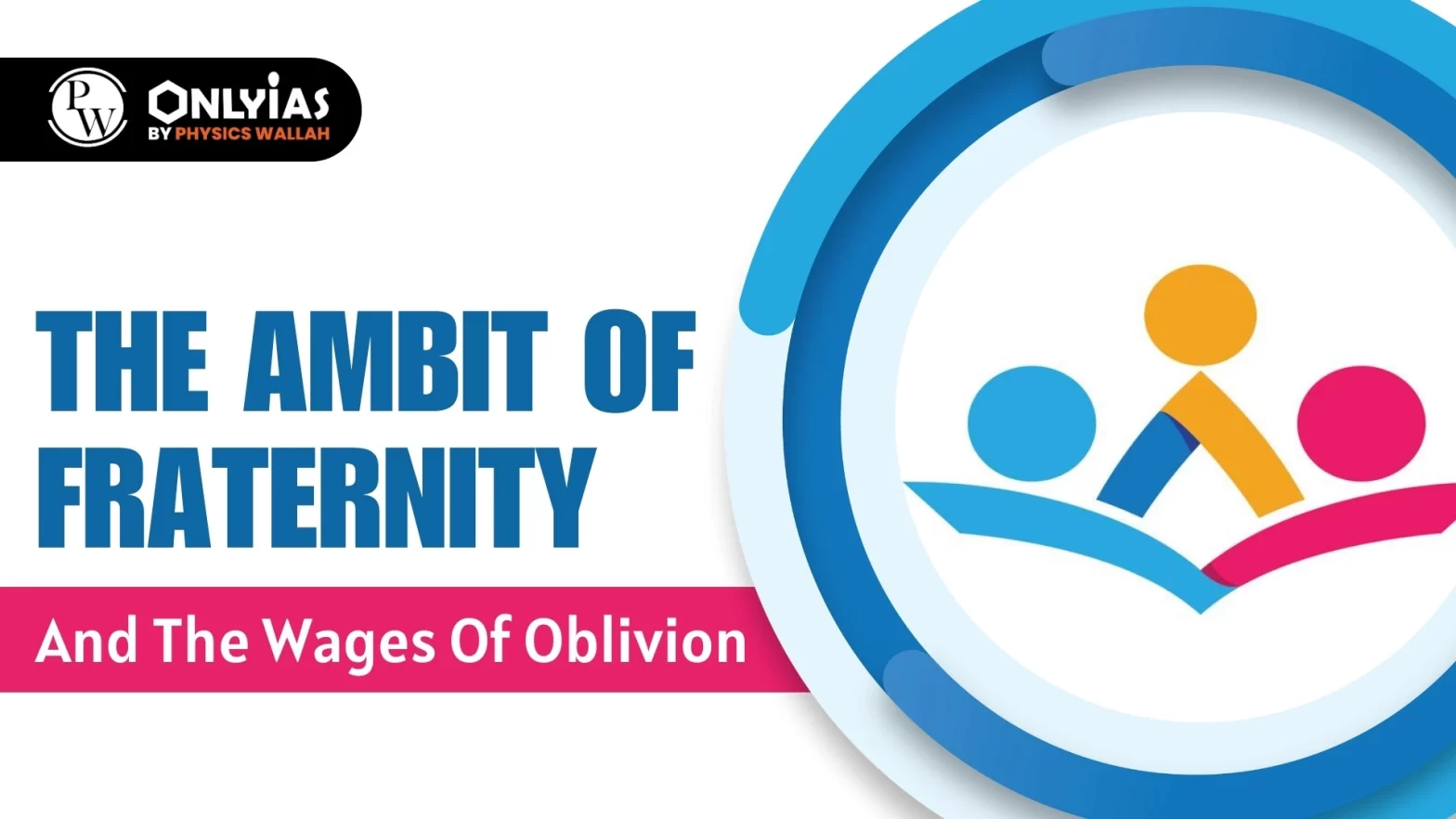Context: This article is based on an Editorial “The ambit of fraternity and the wages of oblivion” Which was published in the Hindu. This article is about the idea of fraternity in India and its historical development.
| Relevancy for Prelims: French Revolution, Dr. B.R. Ambedkar, Forty-Second Amendment (1976), and Fraternity-Article 51A (e).
Relevancy for Mains: Fraternity in Indian Constitution- Challenges and Way Forward. |
Fraternity: Constitutional Pillar of India
- A Value: Along with Justice, Liberty and Equality (French Revolution), this value is inscribed in the Preamble of the Constitution of India.
- Assures: It promises the dignity of the individual and the unity and integrity of the Nation.
- It is an essential part of citizenship.
- Responsibility of People: The idea of fraternity is based on the view that people have responsibilities to each other.
- Fraternity was defined after the French Revolution. However, the definition is still vague and the idea of fraternity is not clear. It is generally seen as an emotion rather than a principle.
Fraternity in Indian Constitution
- Trinity: In the words of Dr. B.R. Ambedkar, the principles of liberty, equality and fraternity (taken from French Revolution) are not to be treated as separate items in a trinity. To divorce one from the other is to defeat the very purpose of democracy.
- Constitutional Provisions: By the Forty-Second Amendment (1976), Fundamental Duties {that was further amended by 86th Amendment (2002)} were introduced in the Constitution of India.
- Article 51A (e) deals with the Concept of Fraternity.
- The Responsibility of the Individual Citizen: Article 51A(e) – It makes it the duty of every citizen of India ‘to promote harmony and the spirit of common among all the people of India, transcending religious, linguistic and regional or sectional diversities’.
- Article 51A(e) of the Constitution does not differentiate between citizens in any of the categories mentioned above and makes it an all-encompassing duty and its ambit therefore is universal.
|
Also Read: The Ambedkar Touch In Rethinking Social Justice Policies
Constitutional Challenges: Inequality and Integration
- Prevalence of Inequality: Sociologists have identified nine categories of people who are determined to be socially and/or politically and/or economically excluded. These particularly include Dalits, Adivasis, women and religious minorities.
- Concern of the Constitution-Makers: Sardar Vallabhbhai Patel, V.P. Menon, etc. raise concerns over the integration ‘of the minds of the people’.
- Conditions Precedent for the Successful Working of Democracy: In the Constituent Assembly, on December 22nd, 1952, B.R. Ambedkar suggested the following points for a successful democracy:
- Absence of glaring inequalities
- Presence of an opposition
- Equality of law and administration
- Observance of constitutional morality
- Avoidance of tyranny of majority over minority
- A functioning of moral order in society, and public conscience
- Arising Concerns: Over the time, uneven development has characterized the States of the Indian Union. Regional and linguistic diversity characterizes them. And also uneven economic development and progress, resulting in uneven levels of education, employment, social cohesion and contentment.
Conclusion:
There is evidence of regional diversity, assertion of linguistic identity and emergence of diverging political orientations. The need of the hour is to take collective and collaborative actions to weed out this inequality.
| Prelims Question (2021)
What was the exact constitutional status of India on 26th January, 1950?
(a) A democratic Republic
(b) A Sovereign Democratic Republic
(c) A Sovereign Secular Democratic Republic
(d) A Sovereign Socialist Secular Democratic Republic
Ans: (b) |
![]() 8 Dec 2023
8 Dec 2023

